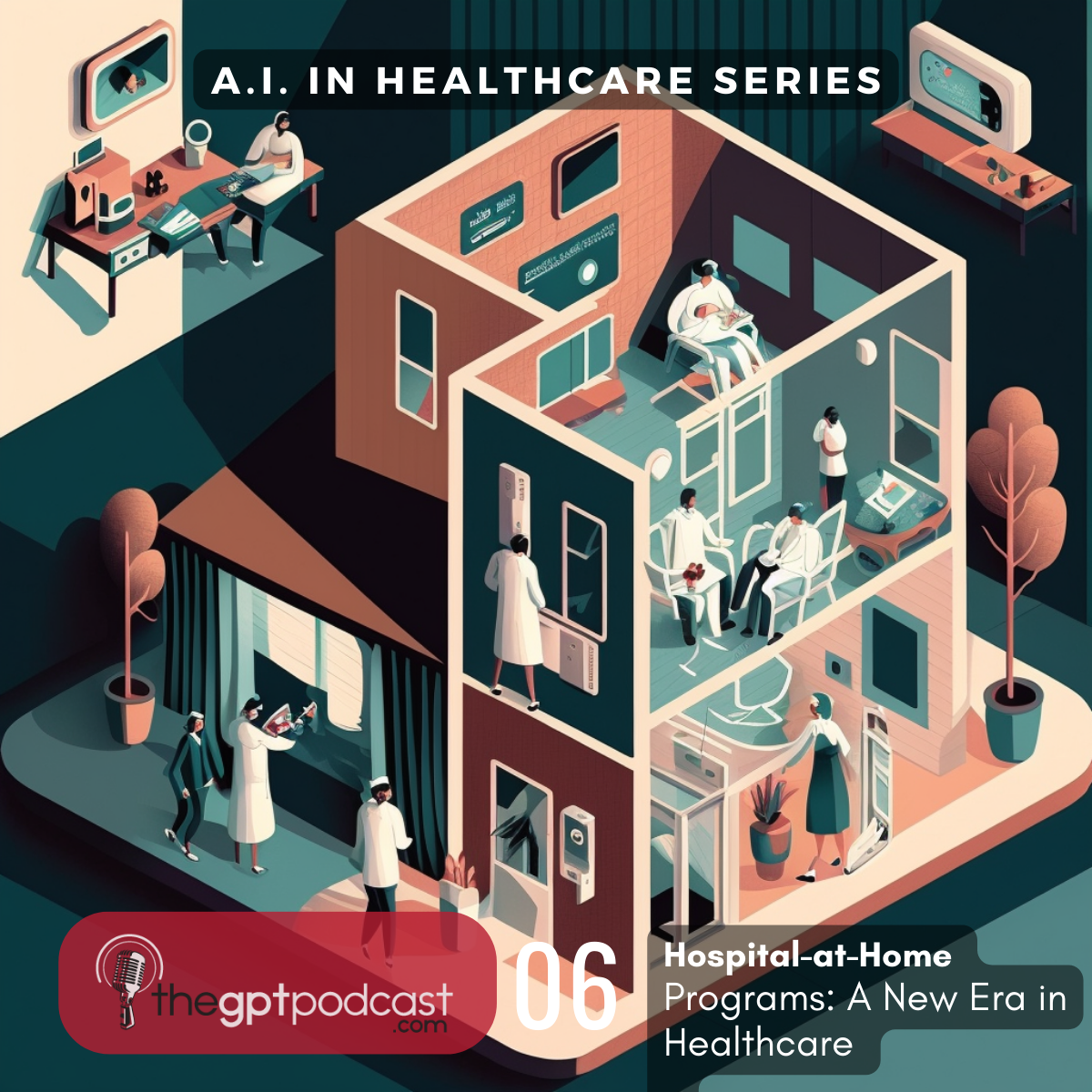Hospital-at-Home Programs: A New Era in Healthcare
🏥➡️🏠 Hospital-at-home programs are transforming healthcare! Patients receive acute care in their own homes, leading to faster recovery and greater comfort. 🩺💊👩⚕️ These programs offer cost savings and improved outcomes, but also face challenges. 🚑📱💡 #Healthcare #HospitalAtHome #Innovation

The healthcare landscape is undergoing a significant transformation with the emergence of hospital-at-home programs. In a recent episode of the GPTpodcast.com's AI in Healthcare Series, hosts Harvey and Brooks delved into this fascinating development and explored its implications for the future of healthcare.
Hospital-at-home programs provide acute care to patients in the comfort of their own homes, offering an alternative to traditional hospital settings. Harvey explained that these programs cater to patients with various conditions, including cancer patients and those recovering from complex procedures like bone marrow transplants. He shared the example of David Elder, who underwent a bone marrow transplant at the Mayo Clinic and was offered the option to receive care through the hospital-at-home program.
The Mayo Clinic was among the first hospitals to experiment with this concept four years ago. However, the COVID-19 pandemic served as a catalyst for the rapid expansion of these programs. The federal agency that runs Medicare and Medicaid relaxed certain rules, allowing at-home hospital care programs to proliferate. As a result, there are now around 250 similar programs throughout the United States.
The benefits of hospital-at-home programs are numerous. Patients tend to recover faster and use physical therapy or skilled nursing care less when they are in a familiar environment. Hospitals can be noisy and pose a risk of infection, so being at home can be more restful and pleasant. Additionally, patients have the convenience of having family around and access to familiar comforts.
Despite the advantages, there are potential risks and challenges associated with providing care at home. Not every patient is stable enough for at-home care, and the programs are voluntary, so some patients may opt not to participate. Critics argue that hospital-at-home programs could lead to substandard care and increased reliance on family members and the public 9-1-1 system. However, there are safeguards in place, such as local paramedics on call and 24-hour access to doctors via video calls.
Many experts believe that hospital-at-home programs could become a permanent fixture in healthcare. They offer cost savings, improved patient outcomes, and reduced need for hospital staff. Advances in technology and the prevalence of portable Internet-enabled devices are also making remote care more feasible.
In summary, hospital-at-home programs are reshaping the future of healthcare by providing acute care in the comfort of patients' homes. While there are potential risks and challenges, the benefits are significant, and the programs are gaining traction across the country. It's an exciting time for healthcare, and it will be interesting to see how these programs continue to evolve.
For more insights into the world of healthcare and AI, tune in to the GPTpodcast.com's AI in Healthcare Series.

